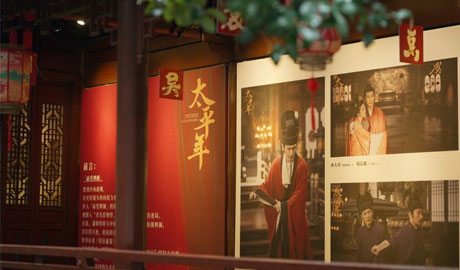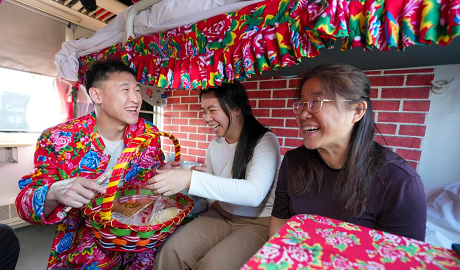

BEIJING, Sept. 26 (Xinhua) -- Chinese scientists have realized the clinical cure of a type 1 diabetes patient by transplanting islet cells derived from chemically induced pluripotent stem cells (CiPSC-islets), according to clinical research published on Wednesday in the journal Cell.
This CiPSC-islets therapy aimed at curing type 1 diabetes, the first of its kind, was performed by medical scientists from Tianjin First Central Hospital, Peking University, Changping Laboratory and Hangzhou Reprogenix Bioscience.
Diabetes is a major disease that threatens human health -- with type 1 diabetes being one of the more severe forms. It is difficult to achieve precise blood sugar control through current treatment methods, leading to various complications that severely affect patients' quality of life.
According to Wang Shusen from Tianjin First Central Hospital, one of the corresponding authors of the paper, traditional islet transplant therapy can alleviate these problems and has shown clear progress as an alternative treatment strategy, but a shortage of pancreas donors means its application is limited.
During the study, a female patient who had type 1 diabetes for 11 years was completely dependent on insulin treatment and suffered from poor blood sugar control. After the transplant of CiPSC-islets, she regained the capability to autonomously regulate her blood sugar.
Seventy-five days after the transplant, she became insulin independent and has remained insulin injection-free for over a year. All her diabetes-related indicators have reached the levels of a healthy person, confirming the clinical cure of this type 1 diabetes patient.
According to Deng Hongkui, director of Peking University's Stem Cell Research Center, another corresponding author, pluripotent stem cells have unlimited proliferation capability and can differentiate into all functional cell types, making them the "seed cells" of regenerative medicine.
However, they only exist in the early stages of embryonic development, and go on to differentiate into various types of adult cells that make up the organism, losing their "seed cell" capability.
If this natural process is reversed, allowing highly differentiated adult cells to regain a pluripotent state similar to that of early embryonic development, then it might be possible to use these "seed cells" to prepare human cells and tissues in vitro for treating various diseases caused by aging, pathological changes, injuries or genetic factors.
Deng led a team to reprogram human somatic cells into pluripotent stem cells through the regulation of small chemical molecules, opening up a new path for preparing human pluripotent stem cells. He was awarded the 2024 Future Science Prize in life sciences for this work.
According to Deng, CiPSC-islets provide a new source for use in transplantation therapy for diabetes, while chemical reprogramming may become a universal core technology for efficiently preparing various types of functional cells, paving the new way for the widespread application of cell therapy in treatment of major diseases.

Various festive events held across China to celebrate upcoming Chinese New Year


Hit epic drama sparks interest in lesser-studied chapter of ancient Chinese history

Lanterns hoisted to mark upcoming Chinese New Year in Hong Kong

"In-train fair" launched in NE China's Heilongjiang amid Spring Festival travel rush
点击右上角![]() 微信好友
微信好友
 朋友圈
朋友圈

请使用浏览器分享功能进行分享
